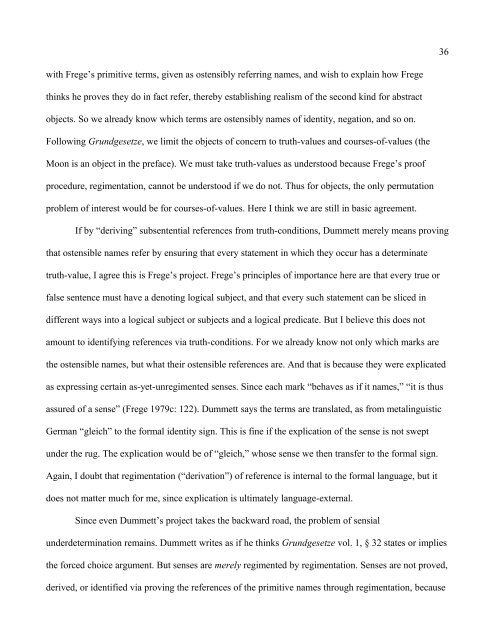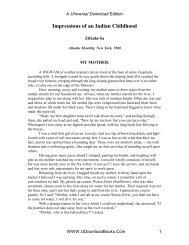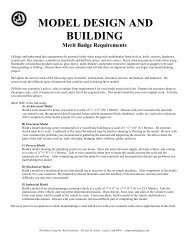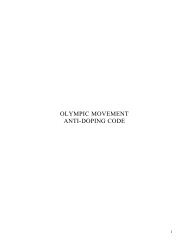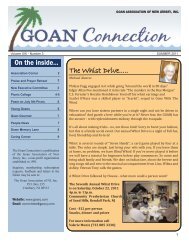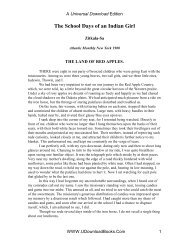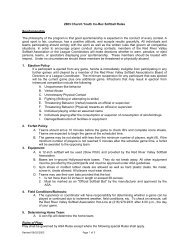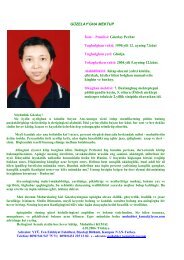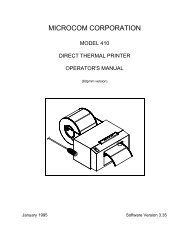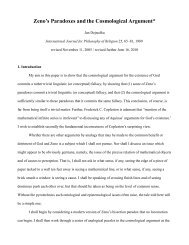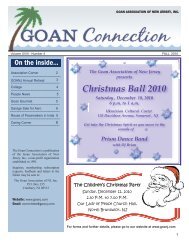Dummett's Backward Road to Frege and to Intuitionism - Tripod
Dummett's Backward Road to Frege and to Intuitionism - Tripod
Dummett's Backward Road to Frege and to Intuitionism - Tripod
Create successful ePaper yourself
Turn your PDF publications into a flip-book with our unique Google optimized e-Paper software.
with <strong>Frege</strong>’s primitive terms, given as ostensibly referring names, <strong>and</strong> wish <strong>to</strong> explain how <strong>Frege</strong><br />
thinks he proves they do in fact refer, thereby establishing realism of the second kind for abstract<br />
objects. So we already know which terms are ostensibly names of identity, negation, <strong>and</strong> so on.<br />
Following Grundgesetze, we limit the objects of concern <strong>to</strong> truth-values <strong>and</strong> courses-of-values (the<br />
Moon is an object in the preface). We must take truth-values as unders<strong>to</strong>od because <strong>Frege</strong>’s proof<br />
procedure, regimentation, cannot be unders<strong>to</strong>od if we do not. Thus for objects, the only permutation<br />
problem of interest would be for courses-of-values. Here I think we are still in basic agreement.<br />
If by “deriving” subsentential references from truth-conditions, Dummett merely means proving<br />
that ostensible names refer by ensuring that every statement in which they occur has a determinate<br />
truth-value, I agree this is <strong>Frege</strong>’s project. <strong>Frege</strong>’s principles of importance here are that every true or<br />
false sentence must have a denoting logical subject, <strong>and</strong> that every such statement can be sliced in<br />
different ways in<strong>to</strong> a logical subject or subjects <strong>and</strong> a logical predicate. But I believe this does not<br />
amount <strong>to</strong> identifying references via truth-conditions. For we already know not only which marks are<br />
the ostensible names, but what their ostensible references are. And that is because they were explicated<br />
as expressing certain as-yet-unregimented senses. Since each mark “behaves as if it names,” “it is thus<br />
assured of a sense” (<strong>Frege</strong> 1979c: 122). Dummett says the terms are translated, as from metalinguistic<br />
German “gleich” <strong>to</strong> the formal identity sign. This is fine if the explication of the sense is not swept<br />
under the rug. The explication would be of “gleich,” whose sense we then transfer <strong>to</strong> the formal sign.<br />
Again, I doubt that regimentation (“derivation”) of reference is internal <strong>to</strong> the formal language, but it<br />
does not matter much for me, since explication is ultimately language-external.<br />
Since even Dummett’s project takes the backward road, the problem of sensial<br />
underdetermination remains. Dummett writes as if he thinks Grundgesetze vol. 1, § 32 states or implies<br />
the forced choice argument. But senses are merely regimented by regimentation. Senses are not proved,<br />
derived, or identified via proving the references of the primitive names through regimentation, because<br />
36


